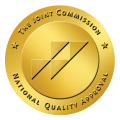Trauma comes in many shapes and sizes. A traumatic experience is one that causes a threat to our safety. In response to trauma, you may suffer intense emotional, psychological, or physical distress. This may affect your ability to function and handle everyday tasks and responsibilities. It may also lead to addiction or substance misuse. While self-medicating trauma may feel comforting at first, in the long run, it only causes more suffering.
Learning how to cope with trauma is often the key to living a happy life. Through our trauma programs at Aftermath Addiction Treatment Center, our compassionate team of professionals who are walking the walk on a mission to help others cope with trauma. Contact Aftermath Addiction us at 855-795-1226 today to learn about the healthy ways for coping with trauma, and how our team can help you or your loved one heal.
Coping with Trauma
Trauma is often a part of life, but it doesn’t have to define your life. Trauma therapy helps make sense of traumatic experiences. Some of the most common forms of trauma are:
- Physical, emotional and sexual abuse
- Domestic violence
- Childhood neglect
- The death of a parent or a child
- Acts of nature (e.g. tornado, hurricane, etc)
- Surviving an accident
- War, combat or other military experiences
Those struggling with how to cope with trauma may find themselves overwhelmed, and feeling alone when trying to cope with trauma. A trauma-informed therapy program, however, ensures that our patient knows they are not alone. We show them that their trauma is valid.
Healthy Ways to Cope with Trauma
No human being, regardless of how strong they are, is immune to the numerous effects of trauma. Even if it has been many years since the trauma occurred, it still can be carried forward. Trauma requires caring and supportive treatment. No one should have to suffer in silence. Here are just some of the healthier approaches available for coping with trauma:
Avoid Triggers
A patient’s trauma can be triggered, in an instant, by particular events, images, locations, people, sights, and sounds that happen to remind them of the original trauma they have experienced and continue to suffer the impact of. One effective way of coping with trauma is to learn and share with your support network the kinds of stimuli and situations that need to be avoided and do your best to steer clear of those triggers every day.
Avoid Drugs, Alcohol, and Other Substances
Coping with trauma can seem like a mountain too high to climb alone. For this reason, too many people turn to drugs and alcohol to cope with their traumatic past. While these so-called solutions may seem to offer some respite from the emotional and physical pain of your trauma, they and the addition that may ensue only serve to add layers of complexity to your struggles.
Turn to Creativity
Expressive art therapy, practicing gratitude, and journaling are just some of the ways that art and creativity can help you cope with trauma in the long term. The power of self-expression and finding pockets of happiness in the mundane, everyday experiences of life can cause a positive ripple effect that permeates through your mind and body.
Trauma-Informed Therapy
There are a variety of treatment options to help a patient cope with trauma. The option that will work the best for each patient will depend on them, their trauma, life experiences, temperament, and goals, but trauma-informed therapy can be of help in healing and learning the essential coping skills and techniques to manage triggers, process emotions and move forward toward a healthier, happier life.
Learn More at Aftermath Addiction Treatment Center
Learning how to cope with trauma in a healthy way, devoid of drugs, alcohol, and other short-term “fixes” that only serve to dig a deeper hole of despair, is essential to living a happy, healthy and productive life. If you have suffered trauma in your past and are still experiencing its effects, don’t hesitate to call Aftermath Addiction Treatment Center at 855-795-1226 or contact our team online.







